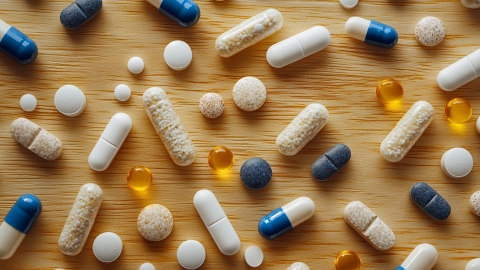What should not be eaten with lychee?
Generally speaking, there are no strict dietary contraindications for consuming lychee. However, it is usually not recommended to consume lychee together with foods such as cucumber, carrot, animal liver, pumpkin, milk, and medications such as Glibenclamide Tablets, Metformin Hydrochloride Tablets, Glimepiride Tablets, Acarbose Tablets, and Repaglinide Tablets. If any abnormalities occur, prompt medical attention is advised. Detailed explanations are as follows:

I. Foods
1. Cucumber: Cucumber contains vitamin C-decomposing enzymes. Lychee is rich in vitamin C, and consuming them together may destroy the vitamin C in lychee, reducing its nutritional value and affecting nutrient absorption.
2. Carrot: Carrots contain ascorbic acid oxidase, which can break down vitamin C in lychee. Consuming them together may damage the nutritional components of lychee and impair the absorption and utilization of vitamin C.
3. Animal Liver: Animal liver contains high levels of copper and iron ions that can oxidize vitamin C in lychee, causing it to lose activity. Consuming them together may reduce the nutritional value of lychee.
4. Pumpkin: Pumpkin contains vitamin C-decomposing enzymes. When consumed with lychee, it may destroy the vitamin C in lychee, affecting the body's absorption of vitamin C and reducing the food's nutritional value.
5. Milk: Milk contains abundant protein, while lychee contains a significant amount of fruit acid. Fruit acid can cause the protein in milk to coagulate, affecting the digestion and absorption of protein and possibly causing gastrointestinal discomfort.
II. Medications
1. Glibenclamide Tablets: This medication belongs to the sulfonylurea class of antidiabetic drugs. Lychee has a high sugar content, and taking them together may reduce the drug's effectiveness, affecting blood glucose control and diabetes management.
2. Metformin Hydrochloride Tablets: This is a commonly used antidiabetic medication. The sugar content in lychee can elevate blood glucose levels. Taking them together may interfere with the glucose-lowering effect of the medication, causing blood glucose fluctuations.
3. Glimepiride Tablets: This medication promotes insulin secretion and lowers blood glucose levels. Lychee contains a large amount of sugar, and consuming them together may affect the glucose-lowering effect of the medication, compromising blood glucose stability.
4. Acarbose Tablets: This medication inhibits carbohydrate digestion and absorption, lowering postprandial blood glucose. Lychee is rich in carbohydrates, and taking them together may weaken the glucose-lowering effect of the medication.
5. Repaglinide Tablets: This medication promotes insulin secretion to lower blood glucose levels. Consuming it with high-sugar lychee may elevate blood glucose levels, affecting the therapeutic effectiveness of the medication.
When consuming lychee, it is advisable to avoid consuming it with the aforementioned foods and medications simultaneously to ensure proper nutrient absorption and medication efficacy. It is important to consume lychee in moderation in daily life, especially for diabetic patients who should strictly control their intake. If discomfort or abnormal blood glucose levels occur after consumption, prompt medical attention should be sought.







